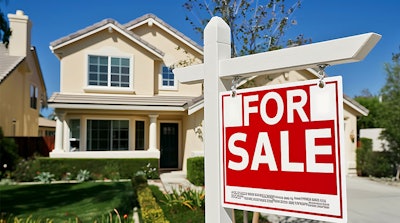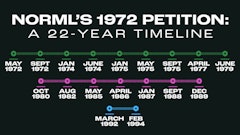
There are many myths surrounding the impact a licensed cannabis business will have on a city and its residents, as owners of dispensaries and cultivation facilities know all too well.
More kids will have access to and consume cannabis underage. Crime will increase. There will be a constant smell. Home values will decline.
The last claim was one voiced by residents in a “teeny tiny village” in the Hudson Valley Region near the border of New York and Connecticut and close to where Will Begeny lives, where people were debating the impact of adult-use cannabis growers and retailers. Opponents were expressing their concerns based on long-standing stigmas associated with cannabis use, not reality, Begeny said.
Begeny, an analyst with Tomo, which compiles real estate data to help provide home buyers with relevant information to make more informed purchases and founded by former Zillow executives, was especially interested in the argument that home values would depreciate, as he had access to data that could help explain this phenomenon if that was in fact the case.
“We’ve got data to actually answer that question, because we can see literally what happens pre and post somebody opening up a dispensary in the area and specifically looking at [what] happens to recreational dispensaries,” Begeny said. “And so we're trying to answer these kind of nuanced questions all the time because it comes up when people are like, ‘Do I go into this area that's just opening up [cannabis sales]?’ Or, ‘I see rumors about this, is this actually going to depreciate my home that I'm trying to move into now?’”
There are real ramifications to the stigma of licensed cannabis businesses, as some states that legalize adult-use sales allow municipalities to opt out of hosting plant-touching companies, despite the regulatory oversight necessary to operate these businesses, which limits entrepreneurship and access.
RELATED: 'State-Legal' Cannabis Is Not What It May Seem: Cannabis sales are prohibited in nearly 50% of municipalities in states with adult-use programs, on average, and many states have no idea how many local governments have bans, adding to the industry’s vast challenges.
“I think there's important questions about how communities are formed that objective housing data actually is a pretty good way to help answer and declutter the fear that might kind of surround the category,” Begeny said.
Begeny examined city home sales data from states in different regions across the country, including Oregon, Colorado, Washington, Michigan and Illinois, to get a sense of how home values change, or don’t, when dispensary businesses open their doors.
“Controlling for everything else in the area, home prices in a ZIP code with a dispensary is going to grow at two percentage points higher than an area that is comparable and does not have a dispensary, which is kind of bananas when you think about it,” Begeny said. “You would expect it to be either at or below.”
He acknowledged it can be difficult to determine correlation versus causation when examining factors that impact home values.
"It's a universal challenge in any kind of real estate market analysis. There's a lot of fluctuation all the time, and whether you have a good agent or not a good agent and all of these other niche systemics," Begeny said. "Generally, we want to look very, very broad data sets over the span of years, look only at median home prices as opposed to anything that's on the upper or lower limits. We didn't want to isolate a single community and paint a story based on what happened in that one community, but we wanted to see if there was any sort of consistent patterns that we saw across the board in order to drive some kind of insight on what's happening overall."
Broadly, the data revealed that dispensaries helped elevate home values in cities with median home prices significantly lower than in surrounding areas and also complemented areas with rising real estate values.
He wondered, what explained that kind of growth? He started looking at specific communities more closely.
In some cases, because of municipal opt outs, cannabis retailers have limited location options and sometimes open in less desirable areas of a city. “Eighty-eight percent of ZIP codes with recreational marijuana dispensaries had significantly lower median household prices than the surrounding areas. And this can coincide with outsized gains in property values over time,” Tomo reported.
“What we're seeing is either you're taking an area that doesn't have a commercial district and you're essentially building a commercial district. And historically, when you build a commercial district in an area, everything around it increases in value because you have more people around. You have all the things that make communities more successful,” Begeny said. “And then on the other side, you have more mature markets like Washington and Colorado in particular. And we just did a deep dive on Chicago. We're seeing some of the same trends emerge that basically you have what we'll call the ‘high-end’ dispensaries, where they become kind of these fashionable parts of a major commercial district. And this is kind of what's happening in the suburbs right now, is some of these dispensaries are treated like any other high-end shopping environment, and they're actually accelerating that pace of growth above and beyond a conventional commercial district.
“They're actually becoming a destination in their own right.”
One example of this is Naperville, Ill., just outside of Chicago, which saw a three-year home value growth rate of 27.4%, Begeny said.
“So, between 2022 and 2023, [Naperville] grew 11 percent, and this is when the rest of the country was teetering at either a flat line or less. And in some cases, median home prices are decreasing, and it's actually gotten to the place where you're actually starting to see the home value in that area exceed total growth, so a market that used to have more expensive houses are now less expensive than the areas that have a new dispensary that opened in 2020,” Begeny said, adding that the Naperville case study was one of the most surprising for him.
“The suburbanization of the dispensary market and how strong that actually is sometimes –two-, three-, four-times increases [in home sales] over the rest of the area; that's one of the areas that I think is most interesting,” he said. “You're starting to see, in the last two years, a major shift. Boulder, Colorado, is another good example where once they started putting these high-end dispensaries in the downtown areas, the whole [value] of the downtown area went up.”
Although the pattern of rising home values near dispensaries that opened between 2020 and 2023 was pretty consistent across the country, there were a few outliers, including Ann Arbor, Mich., another case study that stood out for Begeny.
“Ann Arbor, Michigan, for example, counterintuitively actually did have much slower growth [in areas where many dispensaries are located] compared to the rest of the city. And when we start to look at why that might be the case, there's new commercial developments that are built up around a new Google headquarters there that are probably basically rising the rest of the home prices in certain areas where some of the older parts of the city are f a bit more stagnant,” he said. “We wouldn't say it's because of the dispensaries but we would say that it's in an area of slower growth.”
When determining median home values, Begeny examined the average of the last six months or the median home price to account for seasonal variability and other factors, he said.
Below are some highlights from Tomo’s report:
- Dispensaries that opened in Denver were in areas with an 80% lower median home price compared to the rest of the city. Since 2020, the annual average home prices in these areas increased 6.9 percentage points higher than the rest of the city.
- Dispensaries that opened in Detroit were in areas with a 235% lower median home price, compared to the rest of the city. Since then, the annual average home prices in these areas increased 3 percentage points higher than the rest of the city.
- On average, homes in ZIP codes where a cannabis dispensary opens are likely to see an additional $4,400 increase in property value each year.
- A dispensary can signal significant growth in an already thriving neighborhood. In Boulder, Colo., ZIP codes with a dispensary average slightly higher median home values than the areas without (over $1.5 million, compared to $1.25 million, in 2023). The value of these homes continues to rise 2 percentage points higher every year on average.

























